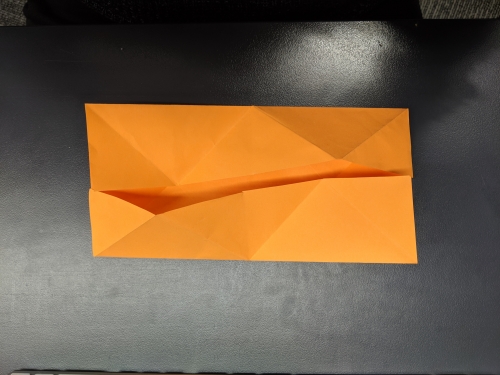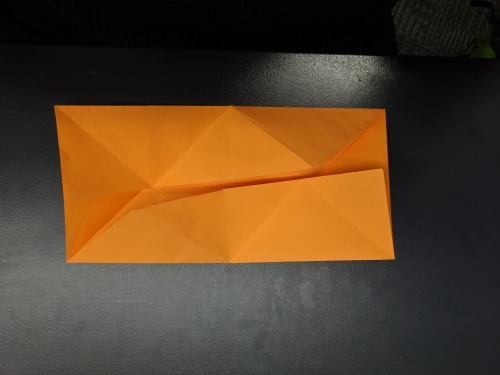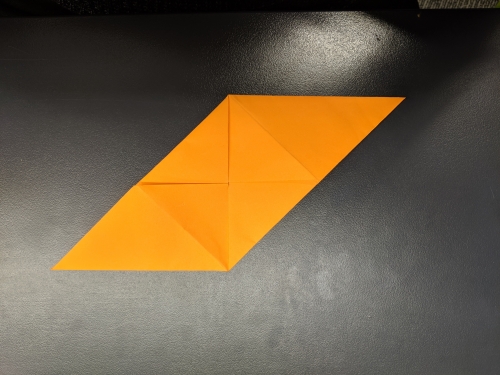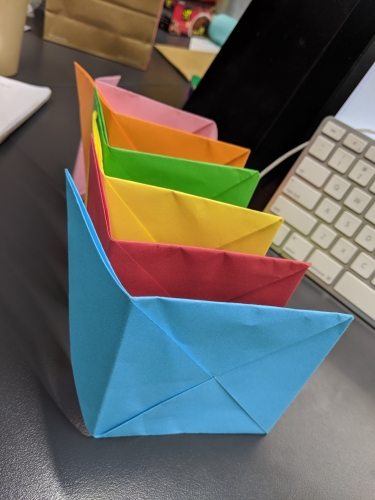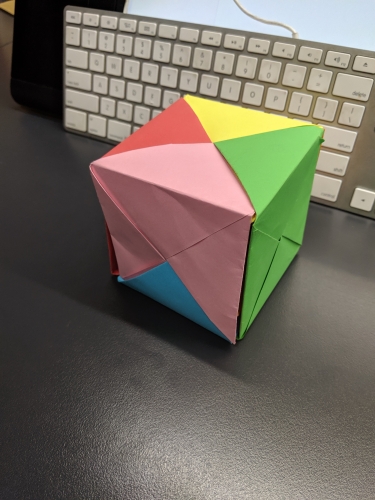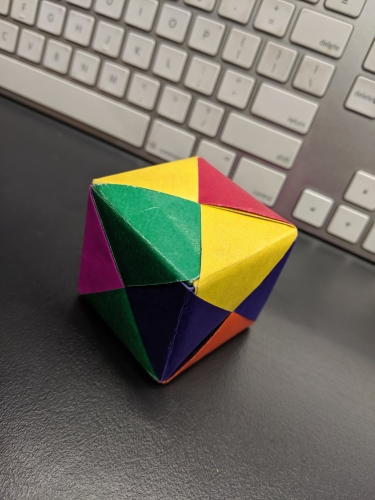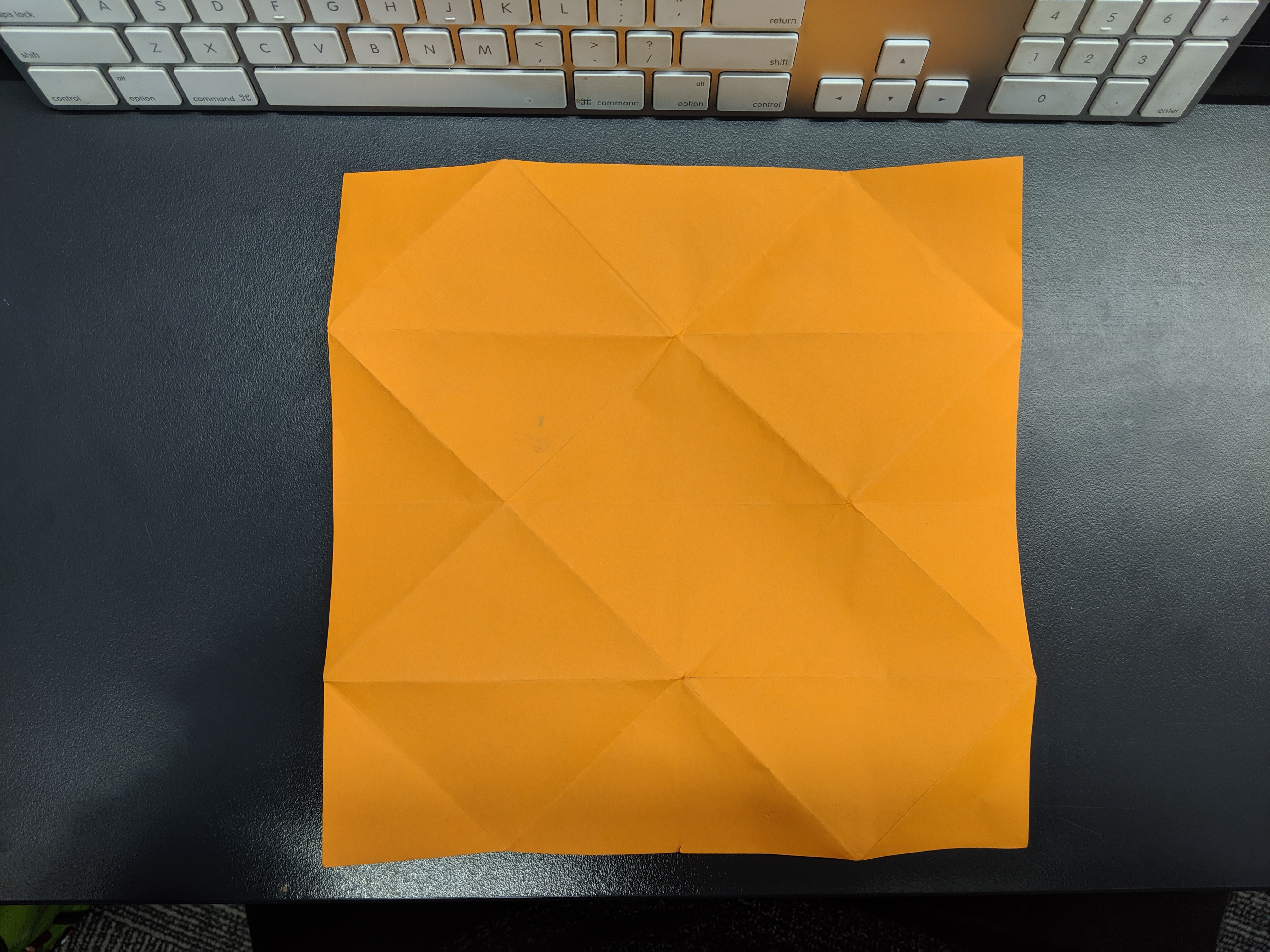
Context:
I was unable to attend this class so I am addressing this task retrospectively but I feel like I got more from this as a result of having some time to think about it and let life provide me with an opportunity.
I work as an Integration Aide at a primary school in the Northern suburbs. One of the students I work with I find particularly challenging, as do all the staff who work with him. I’ve been doing similar work, mostly with teenagers, for more than a decade now and I know I will bring this background of working with people into my work in games.
Method:
This design is called the box, sometimes the star box because of the pattern on each of its sides. It uses 6 square pieces of paper, one for each side.
I had my student teach me how to make the box and then we made a few for other people. We also made several other designs from a book he had taken out from the library. I helped him interpret the instructions from the book, it was an opportunity for me to talk to him about listening to instructions in class and make some connections there. We also spoke about the story of the “Thousand Paper Cranes”, a chance to link the task we were doing to a book I might be able to get him to read later and also a social story for him to consider. We did a little bit of mental maths, trying to calculate how long it would take to make 1000 paper cranes. I think these conversations were equally as valuable as the soothing effect of the task itself.
Response:
This young man has displayed highly challenging classroom behaviour in recent weeks, threatening other students, rarely doing what he is being asked to by his teacher or staff, talking over others frequently, etc. So this week another one of the aides who works with him showed him how to make some origami and he has become fixated on making it for everyone in his class as well as many staff.
I spent half a day with him in class making origami while the other students did their classwork and the teacher had a rare chance to work with other students instead of being mostly focused on trying to manage this kid’s disruptive behaviour. His behaviour while making origami was well mannered, considerate and gentle. A different person.
When describing the task to me in week 2, Max asked me to spend time observing “until I got uncomfortable, and then observe a bit longer” and I really struggled to find something I don’t usually observe that fits this description. I was sitting with this student, thinking that this was such a lovely opportunity to spend some happy time with him, that he must rarely feel so content at school than when he is able to fixate on something like this process of folding paper over and over again and I thought that this is one of the things that video games do for people. In this way, video games can provide therapeutic opportunities and relaxation at the least if they are designed to do so.
Origami provides a clear step-by-step process, is low cost, requires concentration and some degree of self-determined skill, is low-risk and produces an aesthetically pleasing object. These features are all shared with various games and it might be interesting to take the “origami approach” to designing games with satisfying gameplay mechanics.
There is also an interesting thought about “social stories” which is a technique used in working with young people who have experienced trauma but is something that we as humans do naturally. While sharing a relatively simple, repetitive and soothing task such as colouring in, preparing food, going for a walk, playing a familiar card game, etc. an adult will construct a story which is intended to impart some social wisdom but is not framed as a lesson explicitly. The child might ask questions about the story or the adult might use open prompts to encourage them to think about it. This could be a very interesting technique to employ in a game.
About This Work
By Nick Margerison
Email Nick Margerison
Published On: 11/09/2019

